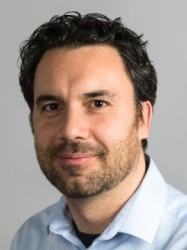Summary
RESEARCH INTEREST
My research interests lie at the interface between organic chemistry and cell biology. I leverage on my organic chemistry background to rationally design and develop small-molecule probes to interfere with endogenous cellular process, with particular interest to DNA targeting. My main research focus is on ageing and cancer biology, I use chemical and molecular biology tools to investigate how DNA packaging and chromatin dynamics are affected by healthy ageing, with the aim to underpin fundamental epigenetic changes that are associated with ageing and could trigger ageing-related disorders.
ABOUT DR. DI ANTONIO
Following a M.Sc. degree in Organic Chemistry from University of Pavia in 2007, Marco undertook a Ph.D in Molecular Sciences at Padua University under the supervision of Prof. Manlio Palumbo and Prof. Mauro Freccero. During his Ph.D, Marco gained an extensive experience on the synthesis of small molecule ligands with DNA cross-linking activity under physiological conditions. Following his Ph.D. Marco moved to Cambridge in 2011 to work with Prof. Shankar Balasubramanian as a Post-Doctoral Research Associate, working on targeting DNA secondary structures such as G-quadruplexes. During his post-doctoral work, Marco has contributed to demonstrate the existence of G-quadruplex DNA and RNA structures in human cells and to their mapping on a genome wide-scale. In 2015, Marco was promoted to Senior Research Associate and kept working in the Balasubramanian group, establishing novel live-cell imaging platforms to investigate DNA G-quadruplex formation in real-time within live cells and investigating the potential of G-quadruplex targeting small-molecules as cancer therapeutics. His research training in Cambridge has enabled him to develop a comprehensive research vision that embraces synthetic organic chemistry, biophysics, molecular and cell biology and genomics
Marco was awarded a BBSRC David Phillips Fellowship in December 2017 to join Imperial College Chemistry where he started his research group in 2018. In 2022 Marco was promoted to Lecturer and established a Satellite group at The Francis Crick Institute.
OPPORTUNITIES
PHD OPPORTUNITIES
Marco is always keen to hear from enthusiastic and bright students with a strong interest in his research programme. If you are interested to join my team send Marco an email with your CV and a Cover Letter.
POSTDOCTORAL OPPORTUNITIES
Marco is always keen to hear from outstanding researchers keen to apply for externally funded fellowships. If you would like to apply for postdoctoral fellowships and you are looking for a group to support you, please do get in touch with Marco sending a short Cover Letter and your CV.
Publications
Journals
Di Antonio M, Galli S, Flint G, et al., 2024, Genome-wide mapping of G-quadruplex DNA: a step-by-step guide to select the most effective method., Rsc Chemical Biology, ISSN:2633-0679
Robinson J, Stenspil SG, Maleckaite K, et al., 2024, Cellular Visualization of G-Quadruplex RNA via Fluorescence- Lifetime Imaging Microscopy., J Am Chem Soc, Vol:146, Pages:1009-1018
Raguseo F, Wang Y, Li J, et al., 2023, The ALS/FTD-related C9orf72 hexanucleotide repeat expansion forms RNA condensates through multimolecular G-quadruplexes, Nature Communications, Vol:14, ISSN:2041-1723
Williams SL, Casas-Delucchi CS, Raguseo F, et al., 2023, Replication-induced DNA secondary structures drive fork uncoupling and breakage., Embo J, Vol:42
Monti L, Di Antonio M, 2023, G-Quadruplexes as Key Transcriptional Regulators in Neglected Trypanosomatid Parasites, Chembiochem, Vol:24, ISSN:1439-4227

